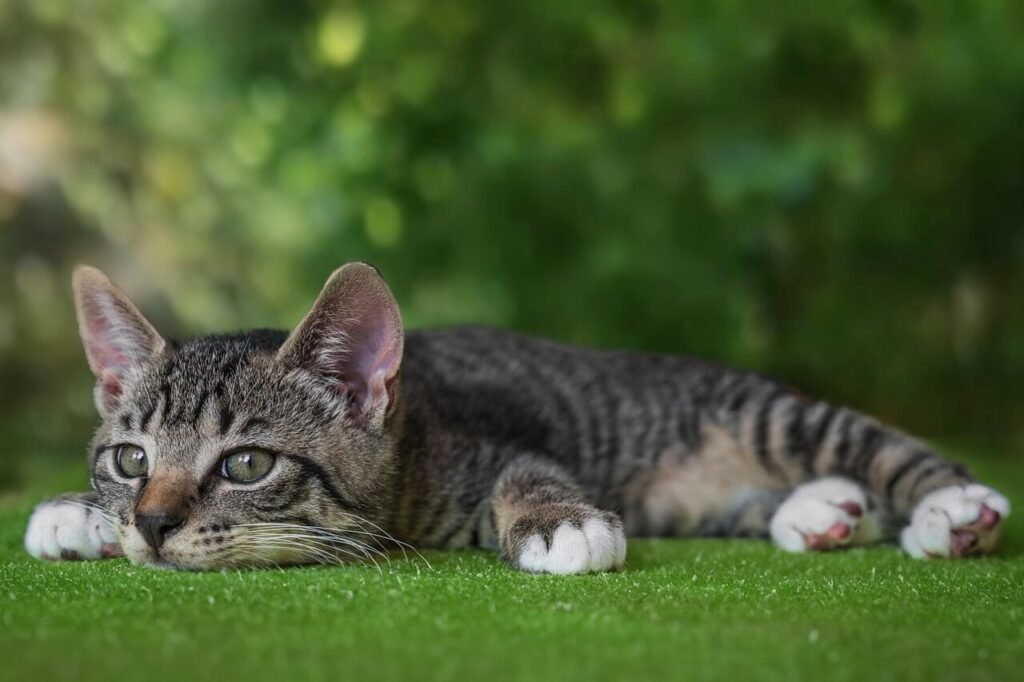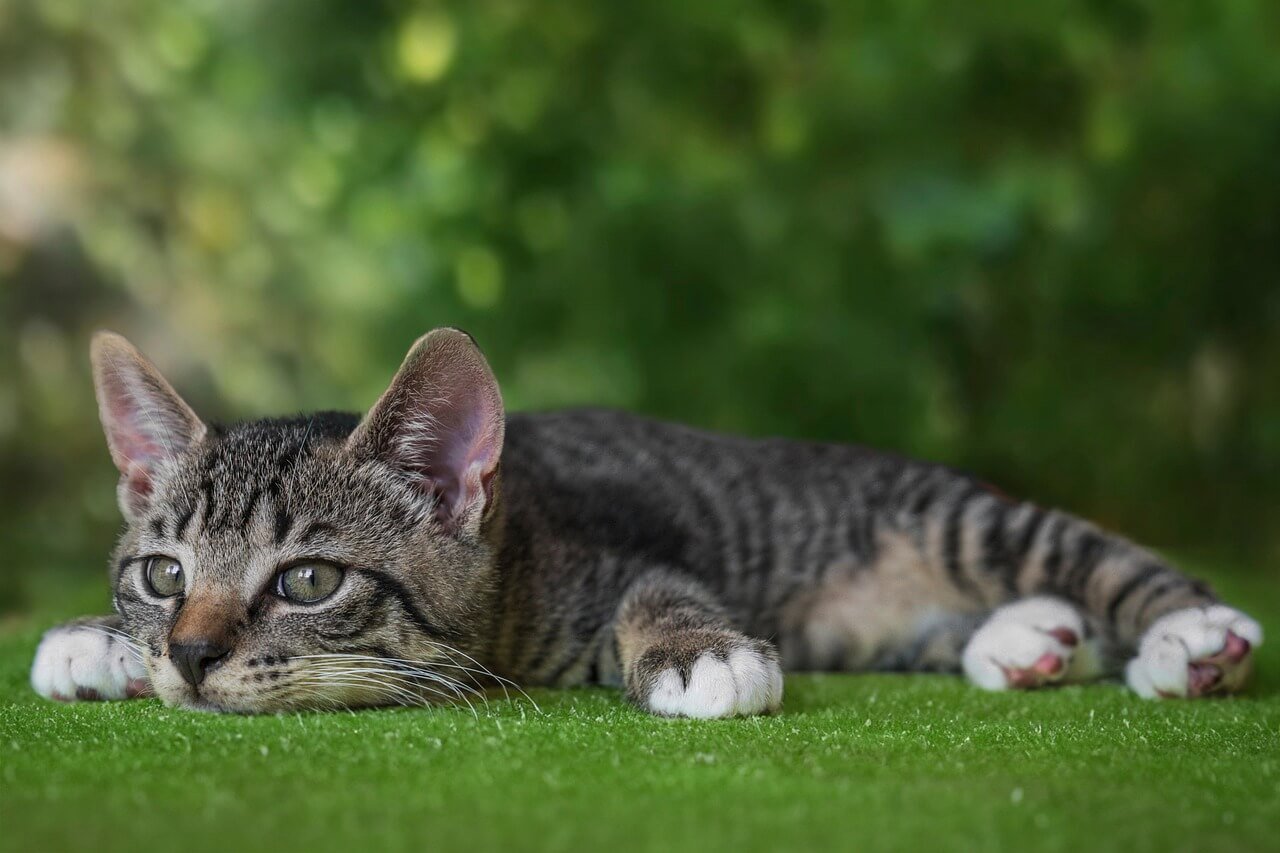Home Remedies for Cat Mange: Gentle Solutions for Your Feline Friend
Mange in cats can be a distressing condition, both for your furry companion and for you as a pet owner. This skin condition, caused by mites, often leads to itching, hair loss, and discomfort. While veterinary treatment is essential for severe cases, there are several home remedies for cat mange that can provide relief and support your cat’s recovery. These natural solutions focus on soothing irritated skin, boosting immunity, and creating a healthier environment for your pet.
In this blog post, we’ll explore effective home remedies for cat mange, tips for preventing future outbreaks, and how to ensure your cat feels comfortable throughout the healing process. Let’s dive into these gentle yet powerful solutions to help your feline friend feel their best again.
Common Types of Mange in Cats and Their Symptoms
Before diving into home remedies, it’s important to understand the different types of mange that can affect cats. Each type has unique characteristics and symptoms. Here’s an overview:
Sarcoptic Mange (Scabies)
Caused by the Sarcoptes scabiei mite, this highly contagious form of mange causes intense itching, redness, and crusty skin.Notoedric Mange
Similar to sarcoptic mange but less common, notoedric mange affects the ears, face, and neck, leading to hair loss and irritation.Demodectic Mange
Caused by Demodex mites, this type is less contagious but can result in patchy hair loss and thickened skin in affected areas.Ear Mites
While technically a type of mange, ear mites primarily cause itching and dark discharge in the ears, rather than widespread skin issues.Walking Dandruff (Cheyletiellosis)
This condition is characterized by flaky, dandruff-like skin and mild itching, caused by Cheyletiella mites.
Understanding these types of mange helps you identify the problem and choose the most effective home remedies for your cat. Early intervention is key to preventing further discomfort.
Effective Home Remedies for Cat Mange
Home remedies for cat mange focus on soothing the skin, reducing inflammation, and eliminating mites naturally. Here are some safe and effective options to try:
Apple Cider Vinegar Spray
Mix equal parts water and apple cider vinegar, then spray it lightly on affected areas to kill mites and reduce itching.Coconut Oil
Apply a small amount of organic coconut oil to irritated skin—it has antifungal and antibacterial properties that promote healing.Oatmeal Baths
Create a soothing oatmeal paste or bath to relieve itching and moisturize dry, inflamed skin.Aloe Vera Gel
Use pure aloe vera gel to calm irritation and speed up the healing process while keeping the skin hydrated.Neem Oil
Dilute neem oil with a carrier oil (like olive oil) and apply it to the affected areas to repel mites and soothe the skin.
These remedies can provide significant relief for your cat, but consistency is key. Always monitor your cat’s reaction to ensure they tolerate the treatment well.
Check this guide 👉Mange in Cats: Best 7 Health Tips!
Check this guide 👉Understanding Cat Skin Conditions: Best 7 Health Tips!

Home Remedies for Cat Mange | How It Helps |
|---|---|
Apple Cider Vinegar Spray | Kills mites and reduces itching |
Coconut Oil | Moisturizes and fights infections |
Oatmeal Baths | Soothes irritation and hydrates the skin |
Aloe Vera Gel | Calms inflammation and promotes healing |
Neem Oil | Repels mites and soothes irritated skin |
Preventive Measures to Avoid Future Mange Outbreaks
Preventing mange is just as important as treating it. By taking proactive steps, you can protect your cat from future infestations. Here are some preventive measures to consider:
Regular Grooming
Brush your cat’s fur regularly to remove dirt, debris, and potential mites before they settle in.Clean Living Environment
Wash bedding, blankets, and toys frequently to eliminate mites and other parasites from your home.Balanced Diet
Provide a nutrient-rich diet to boost your cat’s immune system and help them fight off infections more effectively.Limit Exposure to Stray Animals
Keep your cat indoors or supervise outdoor time to minimize contact with stray animals that may carry mites.Routine Vet Check-Ups
Schedule regular veterinary visits to catch and address any skin issues early before they escalate.
By incorporating these practices into your routine, you can significantly reduce the risk of mange and keep your cat healthy and happy.
Signs That Your Cat Needs Veterinary Attention
While home remedies for cat mange can be effective, some cases require professional veterinary care. Here are signs that indicate it’s time to consult a vet:
Severe Hair Loss
If your cat is losing large patches of fur rapidly, it could signal a more serious underlying issue.Intense Scratching or Biting
Excessive scratching or biting can lead to open wounds and secondary infections, requiring immediate attention.Red, Swollen, or Oozing Skin
Signs of infection, such as redness, swelling, or discharge, need prompt medical treatment.Behavioral Changes
Lethargy, irritability, or loss of appetite may indicate discomfort or illness beyond mange.No Improvement After Treatment
If home remedies don’t show results within a week or two, it’s time to seek professional advice.
Recognizing these warning signs ensures your cat receives timely care and prevents complications. Don’t hesitate to reach out to your vet when in doubt.
Common Mistakes to Avoid When Treating Cat Mange
When treating mange at home, it’s easy to make mistakes that could delay recovery or worsen the condition. Being aware of these pitfalls can help you provide better care for your cat. Here are some common errors to avoid:
Using Human Products
Applying human shampoos, creams, or medications can irritate your cat’s sensitive skin and exacerbate the problem.Overusing Remedies
Excessive application of treatments like oils or sprays can overwhelm your cat’s skin and lead to further irritation.Ignoring Hygiene
Failing to clean your cat’s living space can allow mites to persist, making it harder to eliminate the infestation.Skipping Vet Consultations
Assuming home remedies alone will suffice can delay professional treatment if the condition is severe.Not Monitoring Progress
Neglecting to track improvements or worsening symptoms can result in missed opportunities for timely intervention.
Avoiding these mistakes ensures your cat receives the best possible care. Always prioritize safety and consistency when using home remedies.
Fun Facts About Cat Skin Health and Mites
Understanding your cat’s skin health and the role of mites can deepen your appreciation for their resilience and unique biology. Here are some fascinating facts about cat skin and mange:
Cats Have Thicker Skin Than Humans
A cat’s skin is tougher and more resistant to damage, but it’s still vulnerable to mites and infections.Mites Are Microscopic
Most mites causing mange are invisible to the naked eye, which is why symptoms often appear before the cause is identified.Healthy Cats Can Resist Mites
A strong immune system helps cats naturally fight off minor mite infestations without showing symptoms.Stress Can Worsen Mange
Stress weakens a cat’s immune system, making them more susceptible to mange outbreaks.Mites Thrive in Warm Environments
Warm, humid conditions are ideal for mites, so keeping your home clean and dry can help prevent infestations.
These fun facts highlight the importance of maintaining your cat’s overall health and environment to prevent mange and support recovery.
Ways to Boost Your Cat’s Immune System Naturally
A strong immune system can help your cat fight off mange and other health issues more effectively. Here are some natural ways to support your cat’s immunity:
Provide Omega-3 Fatty Acids
Foods rich in omega-3s, like fish oil, reduce inflammation and promote healthy skin.Include Antioxidant-Rich Foods
Blueberries, spinach, and other antioxidant-rich foods (in moderation) can combat oxidative stress and boost immunity.Ensure Proper Hydration
Hydration supports detoxification and overall immune function, so always provide fresh water.Offer Herbal Supplements (with Vet Approval)
Herbs like echinacea or turmeric may enhance immune health when used under veterinary guidance.Minimize Stress
Create a calm environment with plenty of hiding spots and enrichment to reduce stress-related immune suppression.
By incorporating these practices, you can naturally strengthen your cat’s immune system and improve their ability to recover from mange. Always consult your vet before introducing new supplements or dietary changes.
Frequently Asked Questions About Cat Mange
Can mange in cats go away on its own?
Mild cases may improve over time, but most require treatment to fully resolve.
Are home remedies safe for all cats?
Most remedies are safe, but always test a small area first and consult your vet if your cat has sensitive skin or health issues.
How long does it take to cure mange in cats?
With proper treatment, improvement is usually seen within 1-2 weeks, but full recovery may take several weeks.
Can mange spread to humans?
Some types of mange, like sarcoptic mange, can temporarily infect humans, causing mild itching or rashes.
Is mange contagious between cats?
Yes, certain types of mange, such as sarcoptic mange, are highly contagious and can spread between cats and other pets.
Supporting Your Cat Through Mange Recovery
Mange can be a challenging condition for both cats and their owners, but with the right approach, it’s entirely manageable. Home remedies for cat mange offer gentle, natural solutions that can ease discomfort and promote healing. Combined with preventive measures and vigilant monitoring, these remedies can help your cat regain their health and happiness. Remember, your love and care play a vital role in your cat’s recovery journey. If symptoms persist or worsen, don’t hesitate to seek veterinary guidance. Together, we can ensure our feline companions enjoy a life free from the discomfort of mange, surrounded by comfort and compassion.
Newfoundland Dog Personality: Best 7 Expert Tips! – Discover the gentle, loyal, and protective nature of this giant breed perfect for families.
Can Hot Pavement Burn Your Cats Paws? Best 7 Expert Tips! – Learn how to protect your cat’s paws from hot surfaces and prevent painful burns this summer.
Can Hot Pavement Burn Your Dogs Paws? Best 7 Expert Tips! – Learn how to protect your dog’s paws from hot surfaces and ensure safe summer walks.
Irish Wolfhound Size: Best 7 Expert Tips! – Discover the ideal height, weight, and care tips for this majestic giant breed. Learn how to manage their impressive stature responsibly.





